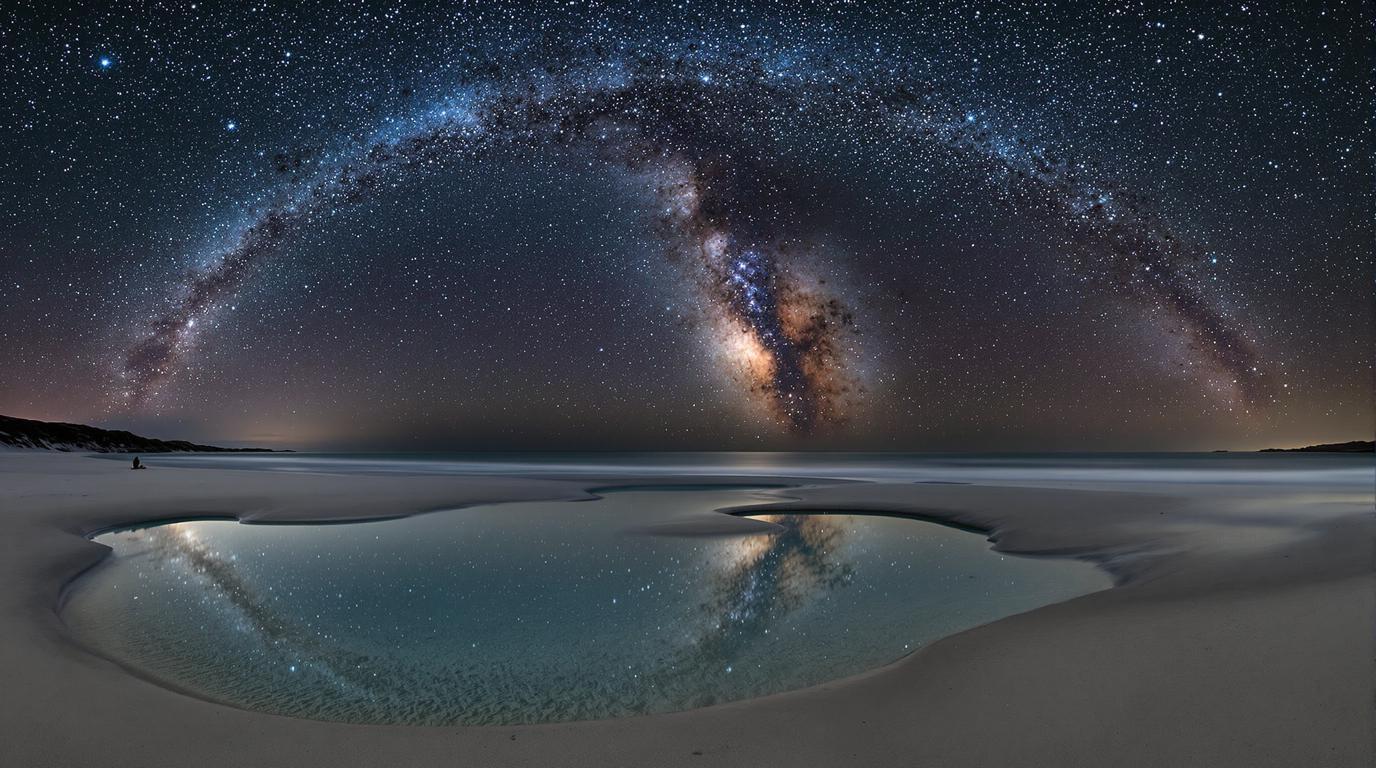The night sky unfolds like a cosmic tapestry over the Isle of Coll, where stars appear so vivid and numerous they seem within reaching distance. This remote Scottish island, located in the Inner Hebrides, holds a distinction few places on Earth can claim – it’s one of only two Dark Sky Communities in Scotland, recognized for having some of the darkest, most pristine night skies in Europe. But Coll’s allure doesn’t end with its stellar views; the island’s immaculate beaches create perfect natural observatories where the Milky Way reflects in tidal pools while waves gently lap at white sand shores.
Scotland’s astronomical paradise
Designated as a Dark Sky Community in 2013 by the International Dark-Sky Association, Coll boasts virtually zero light pollution thanks to its remote location and absence of street lights. The island’s commitment to preserving its natural darkness has created an astronomer’s paradise where celestial objects appear with remarkable clarity. From August through March, when nights stretch longer, visitors can witness everything from meteor showers to the Northern Lights dancing across the horizon.
Beach observatories unlike anywhere else
What makes Coll truly exceptional is the combination of astronomical viewing with pristine coastal beauty. The island’s approximately 23 beaches feature powder-white sand and crystal-clear waters that would look at home in more tropical locations. During daytime, these shores offer tranquil relaxation, but after sunset, they transform into natural stargazing platforms where the boundary between sea and sky seems to disappear.
“There’s something magical about lying on the sand at Feall Beach with nothing but stars above and the sound of waves beside you,” says Ollie Smith, a local astronomy guide. “It’s a sensory experience unlike anywhere else in Britain.”
Discover secret shores and hidden cosmic viewpoints
Many of Coll’s most stunning beaches aren’t visible from the road, creating an adventure of discovery for visitors willing to explore. Local recommendations are essential, as some of the finest stargazing spots require a short hike across the island’s rolling terrain. The island’s modest 104-meter high point, Ben Hogh, offers panoramic views that take in surrounding islands during daylight and uninterrupted celestial vistas after dark.
Unlike other British islands known for sunshine, Coll embraces its darkness as a natural resource. Visitors can explore three designated Dark Sky Discovery Sites at Arinagour, Cliad Football Pitch, and RSPB Totronald – each offering different perspectives on the night sky.
Immersive stargazing experiences
The island’s signature astronomical event, “Coll & The Cosmos,” hosted by Coll Bunkhouse and Cosmos Planetarium, provides an immersive experience with state-of-the-art technology and expert guidance. Participants alternate between indoor learning sessions and outdoor observations where theories come alive in the night sky above. For those seeking solitude rather than organized events, similar to Estonia’s wilderness escapes, Coll offers untouched beaches where the only sound is gentle waves.
“When visitors from cities first see our night sky, they’re often moved to tears,” explains Janet McNeill, longtime island resident. “They’re seeing stars they’ve never noticed before because light pollution has hidden them their entire lives.”
Getting there: The journey enhances the destination
Unlike islands close to major cities, reaching Coll requires commitment – a ferry journey from Oban on Scotland’s west coast. This remoteness preserves both the island’s natural darkness and its unhurried pace of life. Once there, visitors discover an island with just one main road, where unlike other Scottish isles with beach runways, nature rather than timetables dictates your schedule.
Beyond stargazing: Daytime wonders
Daytime on Coll offers wildlife watching (including corncrakes and eagles), water activities around the crystalline shores, and exploration of historic sites. The 15th-century ruins of Breachacha Castle provide a glimpse into the island’s past, while local crafts and cuisine showcase contemporary island culture. Similar to Portugal’s historic coastal accommodations, staying at Coll’s small guesthouses and self-catering cottages integrates visitors into the island’s rhythms.
When the stars emerge over Isle of Coll, time seems suspended between Earth and cosmos. The island doesn’t just offer stargazing – it provides a recalibration of senses, where astronomical wonders combine with the wild beauty of Scottish shores. In our increasingly illuminated world, Coll stands as a reminder that darkness itself can be the most precious natural resource.
